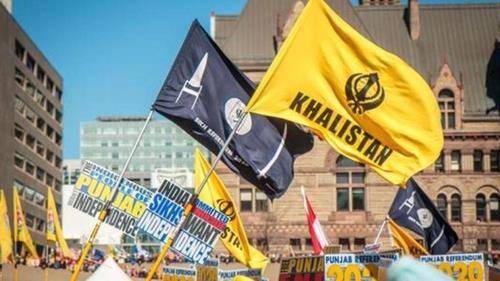Khalistani Separatist Pannun Manipulating People To Seek Fake Asylum Under Guise Of Activism
According to reports, the applicants filed for a judicial review of a decision by the Immigration and Refugee Board (IRB) of Canada's Refugee Appeal Division (RAD) in 2024, which confirmed that the applicants were neither Convention refugees nor persons in need of protection pursuant to sections 96 and 97(1) of the Immigration and Refugee Protection Act.
The recent court ruling upheld RAD's decision as reasonable and dismissed the application.
Both Refugee Protection Division [RPD] and RAD rejected the applicants' sur place (asylum) claim arising from their new profile as supporters of Khalistan. The applicants argued that their affiliations would bring them to the attention of authorities and make it unreasonable to return to India, citing backlash from society and possible police scrutiny.
The RPD found that the Principal Applicant's sur place claim was not credible because he provided inconsistent evidence. It also mentioned that he was not aware of the type of militancy the police could be accusing him of in connection with the Khalistan movement. He was also not aware of what the Khalistan movement was or for what it was being fought.
Various reports suggest that the pro-Khalistani terrorist Gurpatwant Singh Pannun, leader of the banned Sikhs for Justice (SFJ) group, is manipulating people to seek fake asylum abroad under the guise of Khalisatni activism.
According to a report in 'Khalsa Vox', the demand for Khalistan, which largely emerged after 1970, was primarily driven by fringe elements in India and abroad, while the vast majority of Sikhs in India do not support the demand for an independent homeland under the name of Khalistan.
According to the report, the Khalistani campaign began with Jagjit Singh Chauhan, followed by Jarnail Singh Bhindranwale, Dal Khalsa, militant groups in the 1980s and 1990s, Simranjit Singh Mann, and the USA-based banned 'Sikhs for Justice' group with Amritpal Singh being the most recent figure in pushing the propaganda.
The 'Khalsa Vox' report stated that the demand for Khalistan was a conspiracy hatched by unscrupulous and opportunistic political parties in India seeking to create polarisation within the Indian community along communal lines and garner sympathy and votes during elections.
However, Amritpal Singh's campaign ultimately collapsed much like Chauhan's "government in exile".
India has repeatedly warned countries including Canada and the United Kingdom about the Khalistan terror menace.

Legal Disclaimer:
MENAFN provides the
information “as is” without warranty of any kind. We do not accept
any responsibility or liability for the accuracy, content, images,
videos, licenses, completeness, legality, or reliability of the information
contained in this article. If you have any complaints or copyright
issues related to this article, kindly contact the provider above.
Most popular stories
Market Research

- Origin Summit Debuts In Seoul During KBW As Flagship Gathering On IP, AI, And The Next Era Of Blockchain-Enabled Real-World Assets
- What Are The Latest Trends In The Europe Steel Market For 2025?
- United States AI Governance Market Size, Demand, Growth & Outlook 2033
- NOVA Collective Invest Showcases Intelligent Trading System7.0 Iterations Led By Brady Rodriguez
- North America Perms And Relaxants Market Size, Share And Growth Report 2025-2033
- Canada Real Estate Market Size, Share, Trends & Growth Opportunities 2033






















Comments
No comment